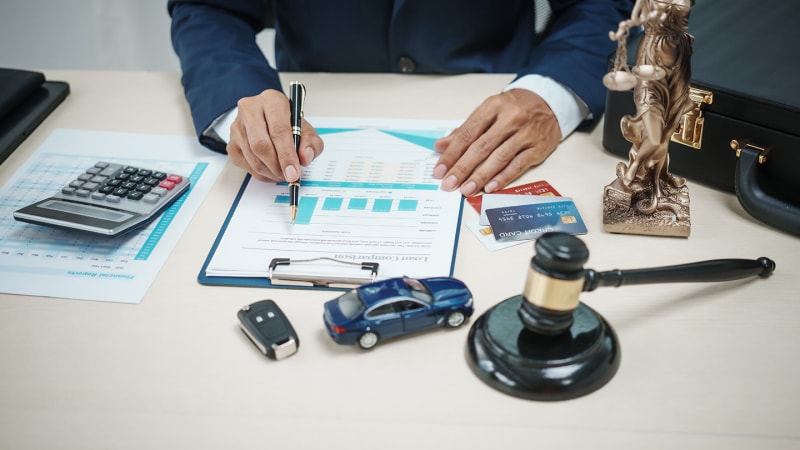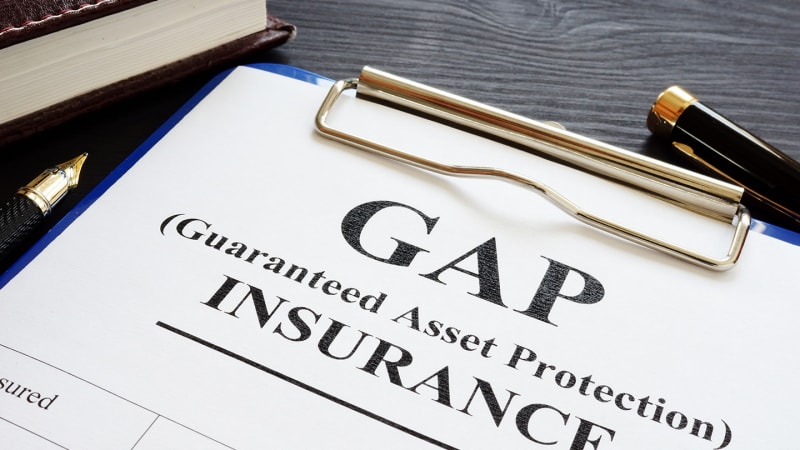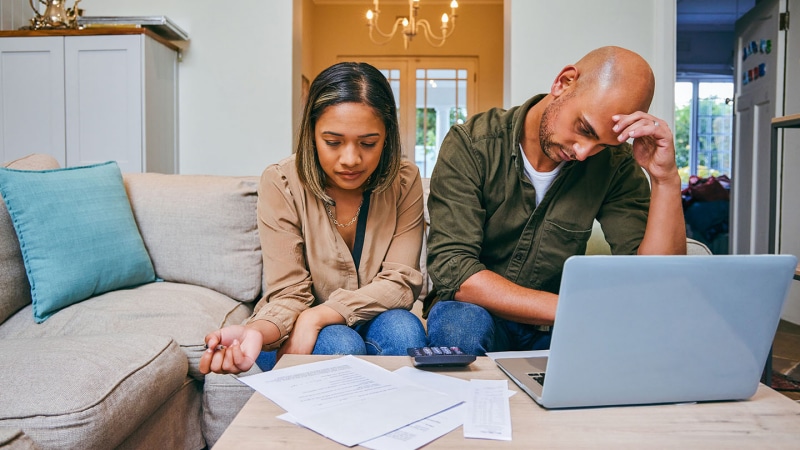How to get a car loan after bankruptcy

Quick insights
- If you’ve filed for bankruptcy, you may have a harder time getting approved for an auto loan, but it’s not impossible.
- It may be helpful to consider a co-signer or saving up for a larger down payment to help improve your odds of getting approved.
- Working towards rebuilding your credit score and making timely payments can help you stay on track and potentially land better loan terms in the future.
Applying for a car loan can be stressful, and if you’re already dealing with bankruptcy, it could feel that much more daunting. However, getting a car loan after bankruptcy may be possible. Let’s review in detail below.
Bankruptcy and its impact on car loans
Bankruptcy can impact your life in several ways, from lowering your credit score to impeding your ability to get approved for loans, such as a car loan. Even if you get approved for a car loan, your loan can still be impacted by bankruptcy, which could include:
- Higher interest rates: Due to increased risk associated with having declared bankruptcy, lenders may charge higher interest rates, increasing the overall cost of the loan.
- Stricter loan terms: Your lender may have stricter requirements, such as a larger down payment, a shorter repayment term or additional collateral.
- Waiting period: Depending on the type of bankruptcy filed, there could be a waiting period before applying for a car loan.
How to get a car loan after bankruptcy
While it may be more challenging to get a car loan after bankruptcy, it isn't impossible. Below are some ways to help increase your approval odds for a car loan after bankruptcy:
Review your credit report
After bankruptcy, it may be beneficial to review your credit report to check that all debts discharged in bankruptcy are correctly reported. You can get a free copy of your credit report from each of the three major credit bureaus or by enrolling in Chase Credit Journey®, a free online tool anyone can use.
Work on improving your credit score
It can be helpful to start improving your credit score as soon as possible. You can do this by paying all your bills on time, keeping your credit card balances low and not taking on too much new debt. While you may need to delay applying for a car loan, this improvement in credit score over time could help your chances for approval later on, as well as potentially better terms.
Save for a down payment
A substantial down payment can increase your chances of getting approved for a car loan as it reduces the lender's risk. It also means you'll need to borrow less, which could make the monthly loan payments smaller and easier to manage.
Consider a co-signer
If you have a trusted friend or family member with good credit you can ask them if they are willing to co-sign the loan with you. This can provide additional assurance to the lender that the loan will be repaid and potentially improve your chances of approval.
Shop around
You don’t have to accept the first loan offer you receive. Shop around and compare loan terms from different lenders to ensure you're getting the right deal for you.
How long after bankruptcy can I buy a car
Depending on your financial situation and the type of bankruptcy filed, it could be a few months before you can buy a car. Let’s go into some factors that can affect the timing of financing a car after bankruptcy below:
- Chapter 7 bankruptcy: If you've filed for Chapter 7 bankruptcy, you may be able to get a car loan as soon as your debts have been discharged. However, the interest rates on these loans can be higher due to the perceived risk by the lender.
- Chapter 13 bankruptcy: If you filed for Chapter 13 bankruptcy, you may be put on a repayment plan that can last a few years. During this time, you may need to get court approval to take on new debt, which includes car loans.
- Improving your credit: Before rushing into a car loan after bankruptcy, consider taking some steps to improve your credit score, such as by making on-time, regular payments and lowering your credit utilization ratio. A higher credit score can help you secure a loan with better terms. This can take some time, potentially months or years, especially after bankruptcy, so have patience as you work towards improving your score.
- Down payment: Having a significant down payment can help improve your chances of getting approved for a car loan after bankruptcy. It reduces the lender's risk and can also lower your monthly payments. The timing for when you can buy a car depends on how long and how much you are willing to save.
In conclusion
Bankruptcy can hinder your ability to get a car loan, but it isn’t impossible. Some helpful tips to consider are to take the time to improve your credit score, save for a down payment and have a co-signer added to the loan. As you work towards rebuilding a strong credit profile, continue to make your payments on time and avoid further negative marks on your credit.



